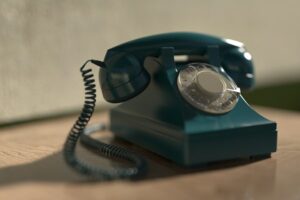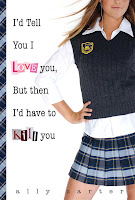Like your grandmother who couldn’t get rid of that semi-broken toaster because she might need it again someday, publishers have a surprising number of obsolete and defunct clauses hanging out in their publishing contracts. Most just elicit a chuckle, but at least one can greatly impact an author’s earnings.
The publishing landscape has shifted so radically in the last decade, especially with the rise of ebooks and downloadable audio. Publishing contracts should shift to match. But like your Depression-era grandmother, publishers are loath to get rid of old clauses they’ve had for decades—even though the publisher will not invoke that clause in any foreseeable future I can imagine. Most of these clauses hang out in the subrights section of a publishing agreement.
My favorite? The publisher’s right to sublicense electronic book rights. Back in 2002, when I first started in the biz, there was a scrappy little electronic publisher called Rosetta Books. Although hard to believe, in those early days right before the electronic shift, some publishers did indeed sublicense electronic book rights to this third-party publisher. In today’s landscape, there isn’t a publisher on the planet who would sublicense electronic rights when such a major chunk of their own profit comes from sales of this format. Why would they share? And yet, if you look at the sublicense section of our pub agreement, the publisher still has the right to sublicense this format to a third party (though we as an agency add “by author approval”). But hey, the publisher might need it again someday, right? So there it stays.
Also going the way of the dinosaur (sadly, in my opinion) is First Serial. In short, first serial is the publisher’s right to license an excerpt from a novel to a major newspaper, magazine, or other outlet. Think back to when Cosmopolitan or GQ featured up-and-coming authors by printing a chapter or two of their forthcoming novels. But now so many magazines have disappeared (or gone solely online). With that, publishers shifted from licensing first serial to simply allowing an approved excerpt to be posted on top sites as a publicity push. That means no licensing fee. Yet lo and behold, there in the subrights section of a pub agreement is the first-serial clause with a 90/10 split in the author’s favor. (As an aside, you’ll also see a publisher’s right to sublicense mass-market rights—something I’ve never seen a publisher do in twenty years of agenting. But hey, might happen someday, right?)
But the one legacy clause that can bite the author in the you-know-what is the short-print-run clause. So be on the look out for it. What does short print run mean? Originally, after a publisher launched the initial print run into the world (which could be around 5,000 or 10,000 copies or more), it was expensive for a publisher to order a “short” print run, like 500 copies to ensure the title remained in-stock for buyers. Now with print-technology shifts (i.e., print-on-demand), the cost remains fairly static—even for a small print run. The clause originally allowed the publisher to reduce the royalty to the author for said short print run. But today, why should the author have to accept a lesser royalty rate when the publisher did not foot an additional expense? Right. They shouldn’t.
Most publishers have removed that clause (finally acknowledging it no longer applies), but occasionally I spot that kind of language in a contract and it needs to be handled.
Also, if you missed this news, the Authors Guild made its model book contract public for anyone to read and access. So happy contract reading.


